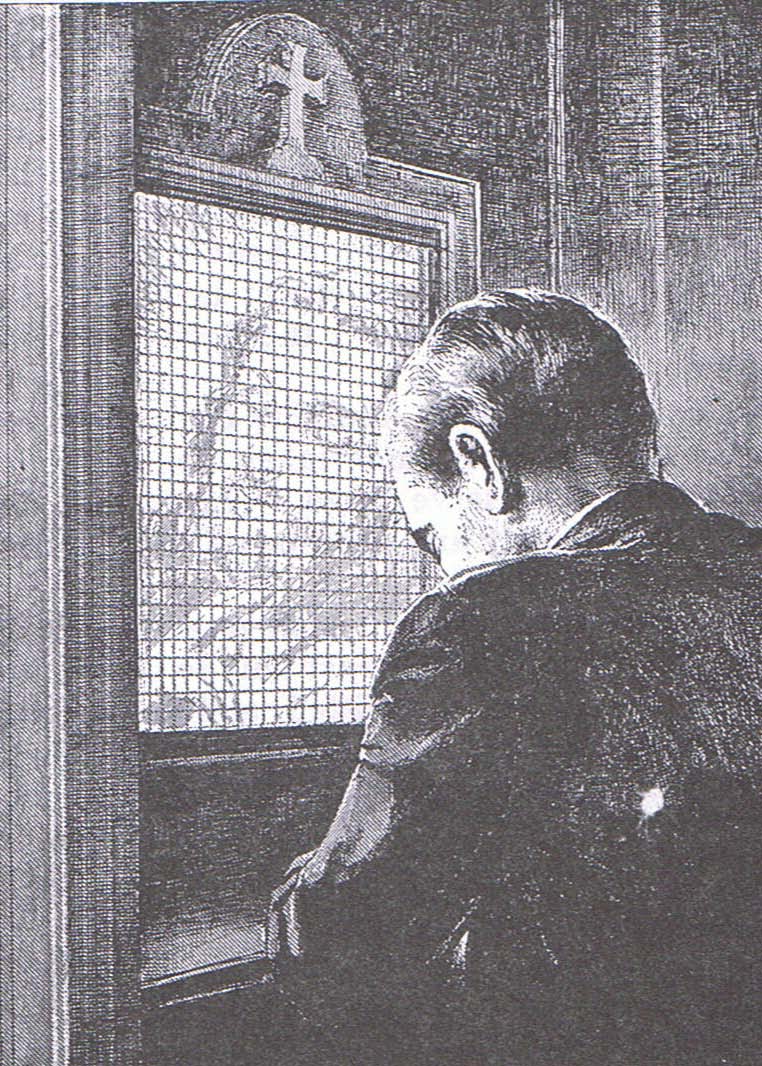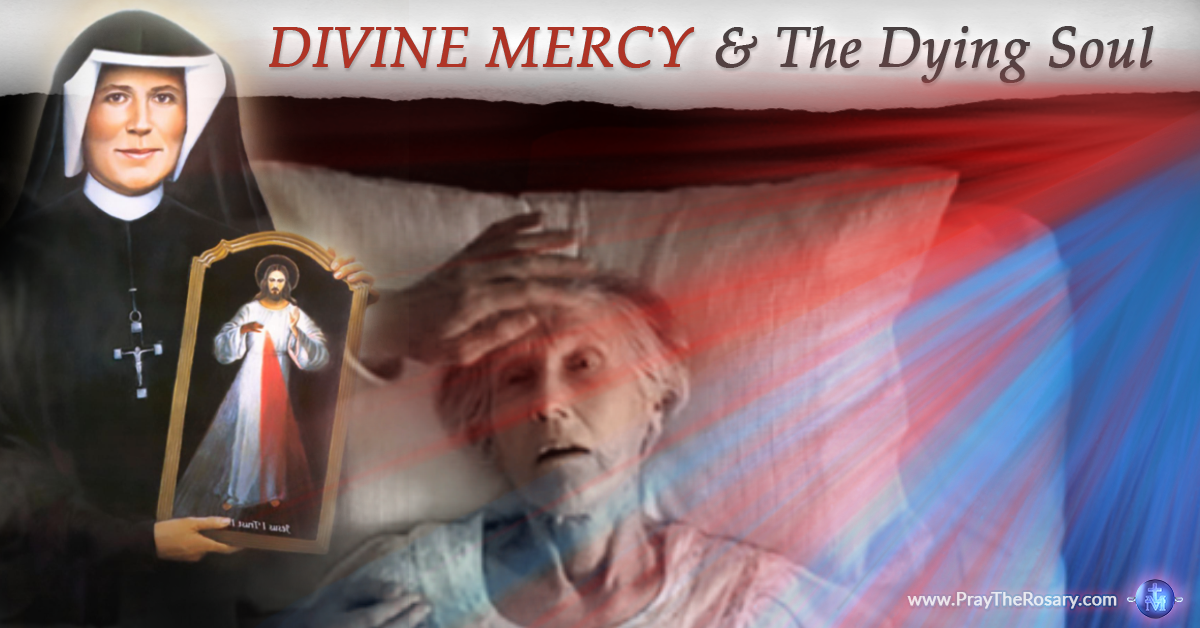
In the first reading today, Isaiah the prophet said, “The spirit of the Lord is upon me, because he has anointed me; he has sent me to bring glad tidings to the poor, to heal the broken hearted, to proclaim liberty to captives, and release to prisoners, etc...”
The Jewish people knew this prophecy referred to the Messiah. Isaiah also predicted, “the eyes of the blind be opened and the ears of the deaf unstopped.” (Isaiah 35:5) The messiah would bring good news and physically heal the sick.
Just as Jesus began His public ministry, he quoted the prophet of Isaiah in a synagogue saying, “The Spirit of the Lord is upon me, because he has anointed me to proclaim good news to the poor. He has sent me to proclaim liberty to the captives and recovering of sight to the blind, to set at liberty those who are oppressed, to proclaim the year of the Lord's favor.” Then, when He sat down, He said, “Today, these words are fulfilled in your hearing.” By reading this scripture and saying it is fulfilled in their hearing, Jesus was declaring Himself the Messiah.
In the Gospel today, John the Baptist first states he is not the Christ, but rather declares himself, the prophet who Isaiah predicted would be sent to prepare for the way of the Lord. He said, “I am the voice of one crying out in the desert, make straight the way of the Lord.” John’s mission was to bring as many as possible to repentance before the coming of the Messiah. Only a repentant heart will fully accept Jesus. The Pharisees would not repent and therefore not accept Jesus.
During the time of Jesus, many Jews thought the Messiah would heal the sick, the blind, and the lame. They also thought the Messiah would come to bring about lasting peace. However, they were wrong when they thought the Messiah would come to free God’s chosen people from the oppression of the Romans. Scriptures do not proclaim Jesus as the leader of an army.
Jesus proves He is the Messiah, by working miracles, forgiving sins and raising the dead, including Himself.
In the future, a false messiah will come. He will claim to be the Messiah for the Jews, but he will actually be the anti-Christ. The false messiah will be world leader, who will bring worldly peace, and has answers to wordly problems. He will want to be worshiped as God. However, the Jews will eventually discover he’s false and will embrace Jesus as the true messiah.
There have also been false messengers who claim to be from God. Muhammad, Buddha, and Confucius claimed to be a messengers of God. But how can we know if there were a messenger from God or not
What if someone would claim to be the Messiah or a messenger from God today? If Jesus claims to be the Messiah, and someone else claims to be the Messiah, than how can one know who the real Messiah is?
Bishop Fulton Sheen indicated there are 3 ways we can know only Jesus is the Messiah. The first way is that the Messiah will be able to work miracles of physical healing (healing the blind, cleansing lepers, the deaf will hear).
The second way we know Jesus is the Messiah, is that the morality Jesus declares does not contradict human reason. In other words, the Messiah would never say it’s okay to kill an unborn baby or that homosexual actions are acceptable.
The third way we can know Jesus is the Messiah is that He fulfills all the prophecies of the Old Testament. During the time of Jesus, there were 456 prophecies the Messiah was expected to fulfill.
For example, it was predicted by the prophet Micah that the Messiah would be born in Bethlehem. “And you, O Bethlehem, in the land of Judah, are by no means least among the rulers of Judah; for from you shall come a ruler who will govern my people Israel.”
Jesus predicted he would die in Jerusalem, and be crucified. As the Gospel of Matthew states, “From that time on Jesus began to show His disciples that He must go to Jerusalem and suffer many things from the elders and chief priests and scribes, and be killed, and on the third day be raised.” Matt. 16:21 And Psalm 22 prophesied Our Lord’s crucifixion, “they have pierced my hands and feet and numbered all my bones.”
What is the probability of fulfilling all 456 prophecies? To fulfill 4 of the 456 prophecies is 1 in 100,000. Jesus doesn’t fulfill 4 prophecies, He fulfills all 456 prophecies. The chance of anyone fulfilling all 456 prophecies 1 and 184 zeros.
It will be impossible for the false messiah to fulfill the prophecies of the Old Testament, because only Jesus did that since He is God. The anti-Christ will be human possessed by the devil, whose power is limited.
Did Muhammed or Buddha or Confucius predict in advance where they would be born or predict in advance how or where they would die? No. Only Jesus, who is the true Messiah predicted all these things in Sacred Scripture.
Did Muhammed or Buddha or Confucius ask anyone to have an intimate and personal relationship with them or to love them? No.
But Jesus asked all to have an intimate and personal relationship with Him. Jesus wants all to love Him and remain in His love. He wants all to be His friends. He said, “As the Father loves me, so I also love you. Remain in my love. This is my commandment: love one another as I love you....You are my friends if you do what I command you.”
The anti-Christ will not be sacrificial, and won’t be willing to lay down His life for anyone, but rather reject the cross. He will someday work false miracles. He will appear to do miracles, but they not be true miracles. He will claim to raise the dead, but the person he claims to raise from the dead will not actually be dead. The anti-Christ will not be able to predict where he would be born nor how or where he will die. The anti-Christ will have morality that contradicts human reason. He will not ask anyone to have a intimate union with him.
He will reject the cross and the narrow path of sacrifice. He will not do as Jesus, who laid down His life for us. Rather, he will promote worldly honors and pleasures.
So if someone were to claim he is the Messiah today, we could easily tell he isn’t.
John is calling all to repentance to prepare the way for the Lord, so that all will accept Jesus as the Messiah. By making a good Confession before Christmas, we will rejoice in the birth of Jesus and be prepared for His Second Coming.
Jesus is the Messiah, because He fulfilled all Old Testament prophecies, because He truly raised people from the dead and not just some people, He raised Himself from the dead. Jesus healed the blind, the lame, the deaf. Jesus predicted His own coming in Bethlehem and His crucifixion in Jerusalem and that He would rise from the dead. When He comes on the clouds of heaven, only Jesus can and will bring about a lasting peace, when the world will be transformed and made new, and all will receive a resurrected body at the end of the world.
Today, let us rejoice that Jesus is the Messiah, that Jesus is God and let us ask the Blessed Virgin Mary, the Mother of the Messiah, the Mother of God, to pray for us, that we may help all to come to have a personal and intimate relationship with Her Son, who loves us so much, He laid down His life for us, that we may have life with Him in heaven.







